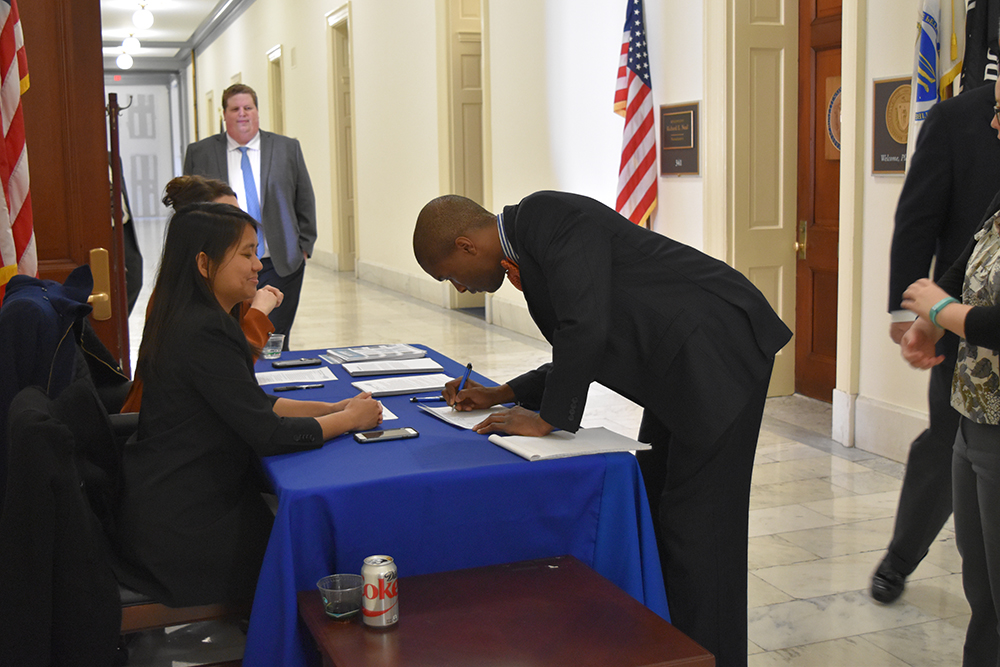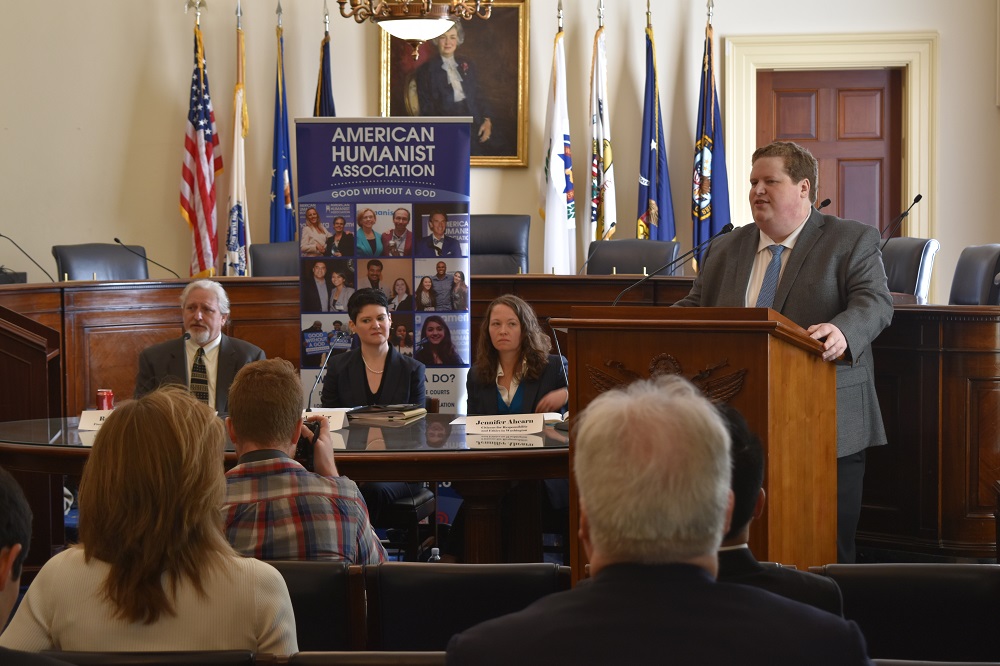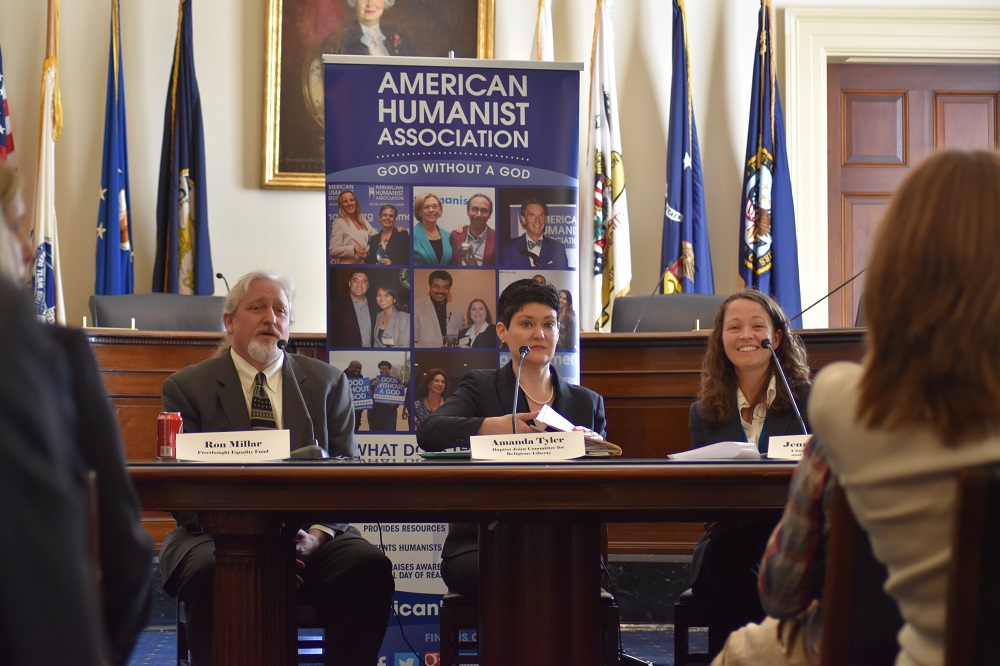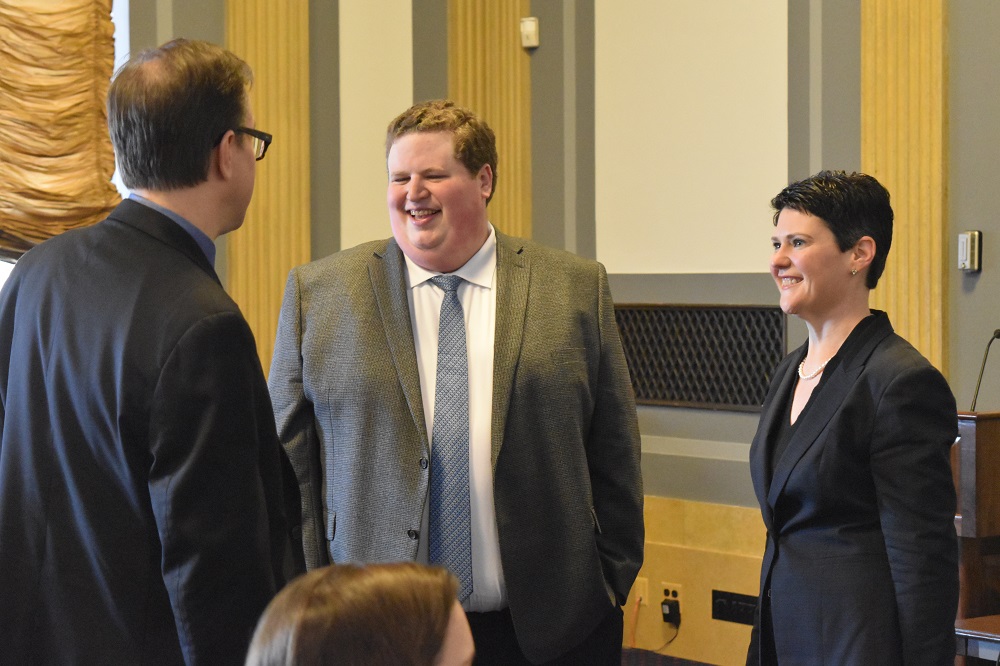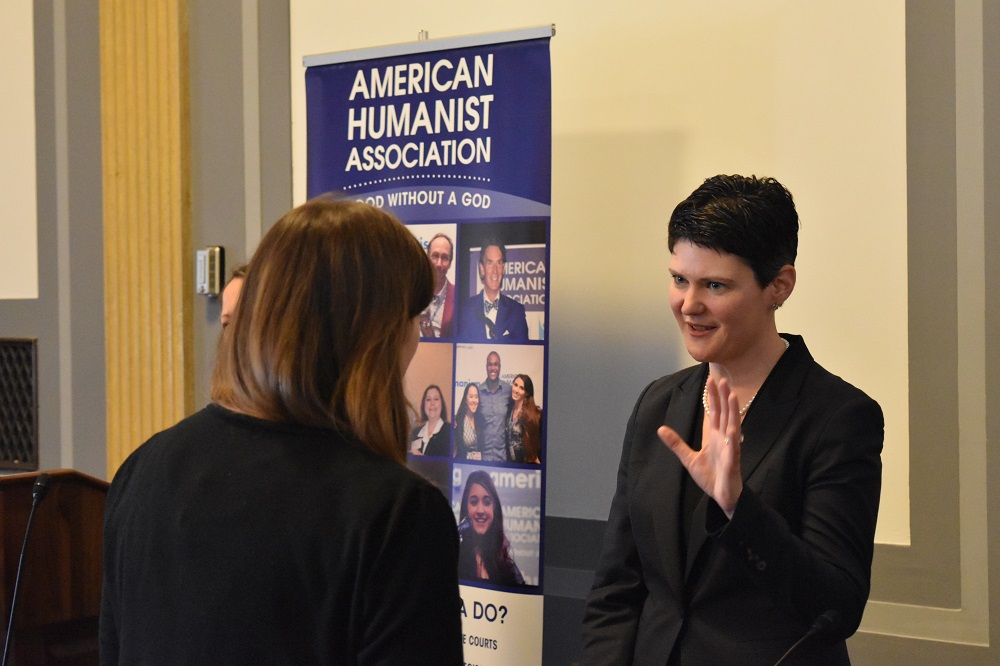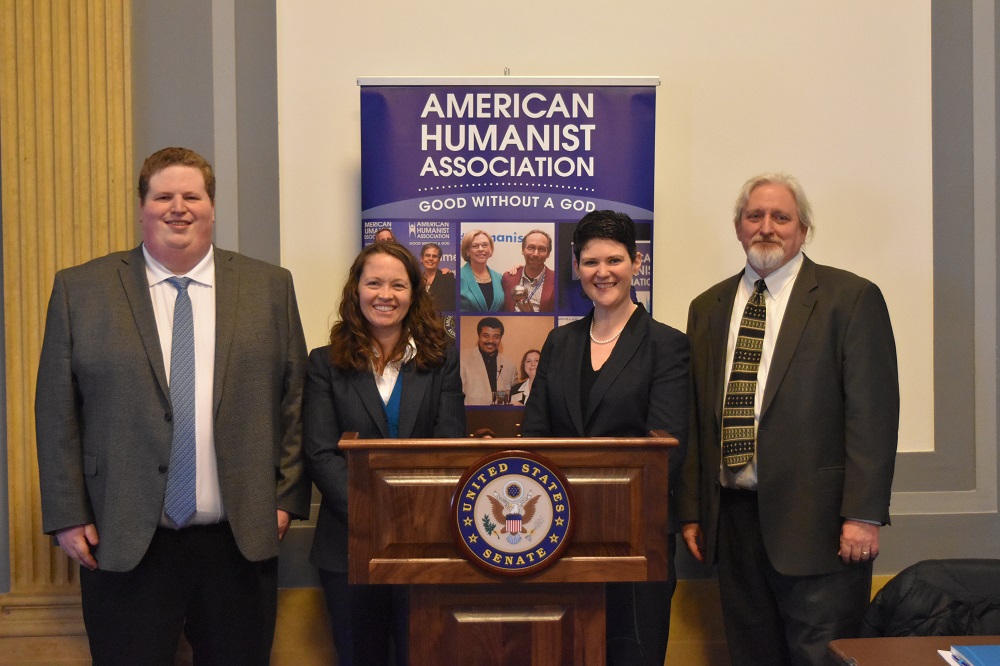On the Hill: AHA Holds Johnson Amendment Briefings
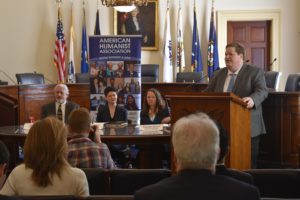
Yesterday, the American Humanist Association, along with co-sponsor the Center for Freethought Equality, held briefings in both the US House and Senate to discuss the Johnson Amendment, and why repealing this law would spell disaster for both the separation of church and state and American democracy in general. Speaking at this event were Amanda Tyler from the Baptist Joint Committee, Jennifer Ahearn from Citizens for Responsibility and Ethics in Washington, and Ron Millar of the Freethought Equality Fund PAC. Attendees included staff of many congressional offices, from Rep. Eddie Bernice Johnson’s (D-TX) to Senators Ted Cruz’s (R-TX) and Marco Rubio’s (R-FL).
The Johnson Amendment refers to a change in the US tax code in 1954 that prohibited houses of worship and other 501(c)(3) charitable organizations from participating in campaign politics while receiving preferential tax status. (Under the amendment these organizations are free to participate in campaign politics if they give up their tax-exempt status.) According to the IRS,
under the Internal Revenue Code, all section 501(c)(3) organizations are prohibited from directly or indirectly participating in, or intervening in, any political campaign on behalf of (or in opposition to) any candidate for elective public office. Contributions to political campaign funds or public statements of position (verbal or written) made on behalf of the organization in favor of or in opposition to any candidate for public office clearly violate the prohibition against political campaign activity. Violating this prohibition may result in denial or revocation of tax-exempt status and the imposition of certain excise taxes.
Unfortunately, President Trump and his religious right allies in Congress have promised to repeal the Johnson Amendment. Speaking at the Values Voter Summit in September, then-candidate Trump stated:
The first thing we have to do is give our churches their voice back. It’s been taken away. The Johnson Amendment has blocked our pastors and ministers and others from speaking their minds from their own pulpits. If they want to talk about Christianity, if they want to preach, if they want to talk about politics, they’re unable to do so. If they want to do it, they take a tremendous risk that they lose their tax-exempt status. All religious leaders should be able to freely express their thoughts and feelings on religious matters. And I will repeal the Johnson Amendment if I am elected your president, I promise.
Rep. Walter Jones (R-NC) has already introduced a bill in the House of Representatives, HR 172, that will do just that.
But what exactly does a repeal of the Johnson Amendment mean?
Frighteningly, political donations to churches, which would eventually be given to candidates or causes, would become tax-deductible, unlike other forms of political giving. It’s important to note that contributions to super PACs and to candidates are not tax-deductible, which means that churches would become the most attractive vehicle for political donations because of the tax benefits.
Churches and other houses of worship would also be able to endorse candidates from the pulpit, and tie their endorsement to a religious imperative in order to sway their parishioners. Doing so would not threaten their privileged tax status, whereas today such actions, as a result of the Johnson Amendment, could result in a loss of that tax-free status.
But that’s not all. Donations to churches for political ends would be anonymous, unlike most other forms of political giving. And while most 501(c) groups must file Form 990 tax returns that provide some information about the group and its activities, churches are exempt from that reporting requirement. As a result, their political spending would be nearly impossible to track. For example, Betsy DeVos and her family contributed over ten million dollars to candidates during this election cycle, including contributions to seventeen of the members of the Senate who will be voting on her nomination as secretary of education. We know that because of today’s reporting rules for political contributions. If the Johnson Amendment had not been in effect, she could have routed the same contributions through a friendly right-wing church—keeping her identity secret, and generating nearly four million dollars in tax savings to boot.
Essentially, if the Johnson Amendment is repealed, churches will become the most efficient means to make political contributions. Donors will be anonymous, and they’ll be able to deduct their political donations from their taxes (unlike any other form of political giving). Churches won’t face oversight from the IRS and Federal Election Commission like other political committees do, and the leaders of these churches will be able to tell their parishioners that God demands they vote for a particular candidate. That’s why the American Humanist Association will continue to advocate for maintaining the Johnson Amendment and protecting the separation of church and state from politicians who care more about campaign donations than democratic principles.
